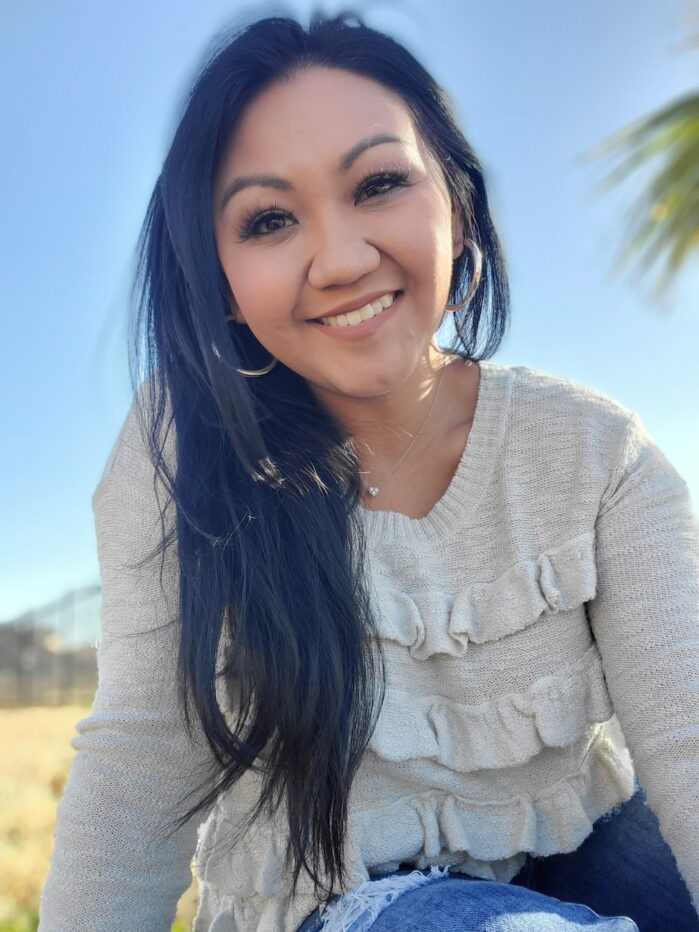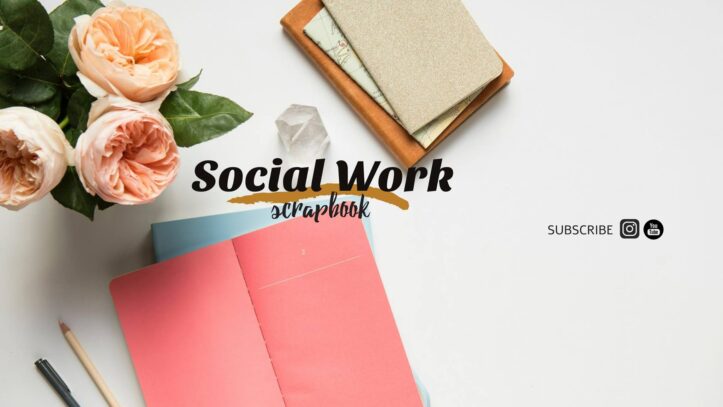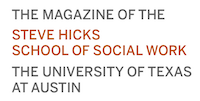
Near the end of completing her bachelor’s in psychology, first-gen college student from San Antonio Lauren Gutierrez felt lost at UT Austin.
“I didn’t know what I wanted to do,” she said. “I thought I wanted to be an ER physician or work somewhere in the medical field. I just wasn’t feeling any of the courses. I was at the point where I didn’t want to check my grades. My advisor told me it was a sign I wasn’t on the right path.”
Gutierrez’s advisor encouraged her to take an introduction to social work course. She was not very excited about the course until she was given an assignment to interview a social worker about what they do. She decided to interview the professor teaching the course, Yolanda Padilla.
“That was my first social work session,” Gutierrez said “She had this belief in me. We continued to meet and she taught me about school social work. She became my mentor and encouraged me to apply for the master of social work program.”
After graduating with her master’s from the Steve Hicks School in 2009, Gutierrez began her career as a school social worker. In this role, she served as a field instructor for college students completing internships and went above and beyond to do her part to help mold future social workers.
Gutierrez saw that her interns had questions about daily social work experiences, therapy techniques and how to manage burnout and stress in the field. Wanting to find creative and memorable ways of showing them how to apply what they were learning in the classroom to real-life scenarios, she searched YouTube for examples. She wasn’t expecting to be bombarded with negative stereotypes about the field.
“I thought ‘you know what, I’m going to start a channel,’” Gutierrez said. “I’m going to combat this and I’m going to talk about why I love the field so much.”
The Social Work Scrapbook
In 2017, Gutierrez created a YouTube channel called the Social Work Scrapbook to provide first-hand knowledge in an easy-to-understand, aesthetically pleasing way to students. She wanted to show the positive side of social work but most of all, she wanted to share insight on her personal experience to first-gen BIPOC students to show how important diversity is to the field. She covered topics on how to be successful in BSW and MSSW programs, how to connect students and families to resources, conduct home visits and provided social work communication methods.
“My interns told me they were taking notes and going back to their field instruction courses and sharing what they learned from the Social Work Scrapbook with their whole class,” Gutierrez said. “It became one of those things where people would check in with them before class and ask ‘what did your field instructor talk about, what did you learn?’”

Since starting in 2017, the Social Work Scrapbook’s audience grew to more than 18,000 subscribers not only including current social work students but prospective ones and even experienced social workers. Gutierrez expanded her coverage to topics such as how to approach ethical dilemmas, explain confidentiality to clients, become a school social worker, pass the licensing exam and much more. She also created a website, Facebook and Instagram page to reach a state-wide audience.
Gutierrez hopes her platform inspires her audience and makes the value social workers bring to society clear.
“I hope they leave with a different perception of what social work is and know that it’s different day-to-day,” she said. “It’s a flexible field. It is what you make it and everyone is needed no matter your background or your age because you have something to provide to the client that’s sitting across from you and they have something to provide to you.”
